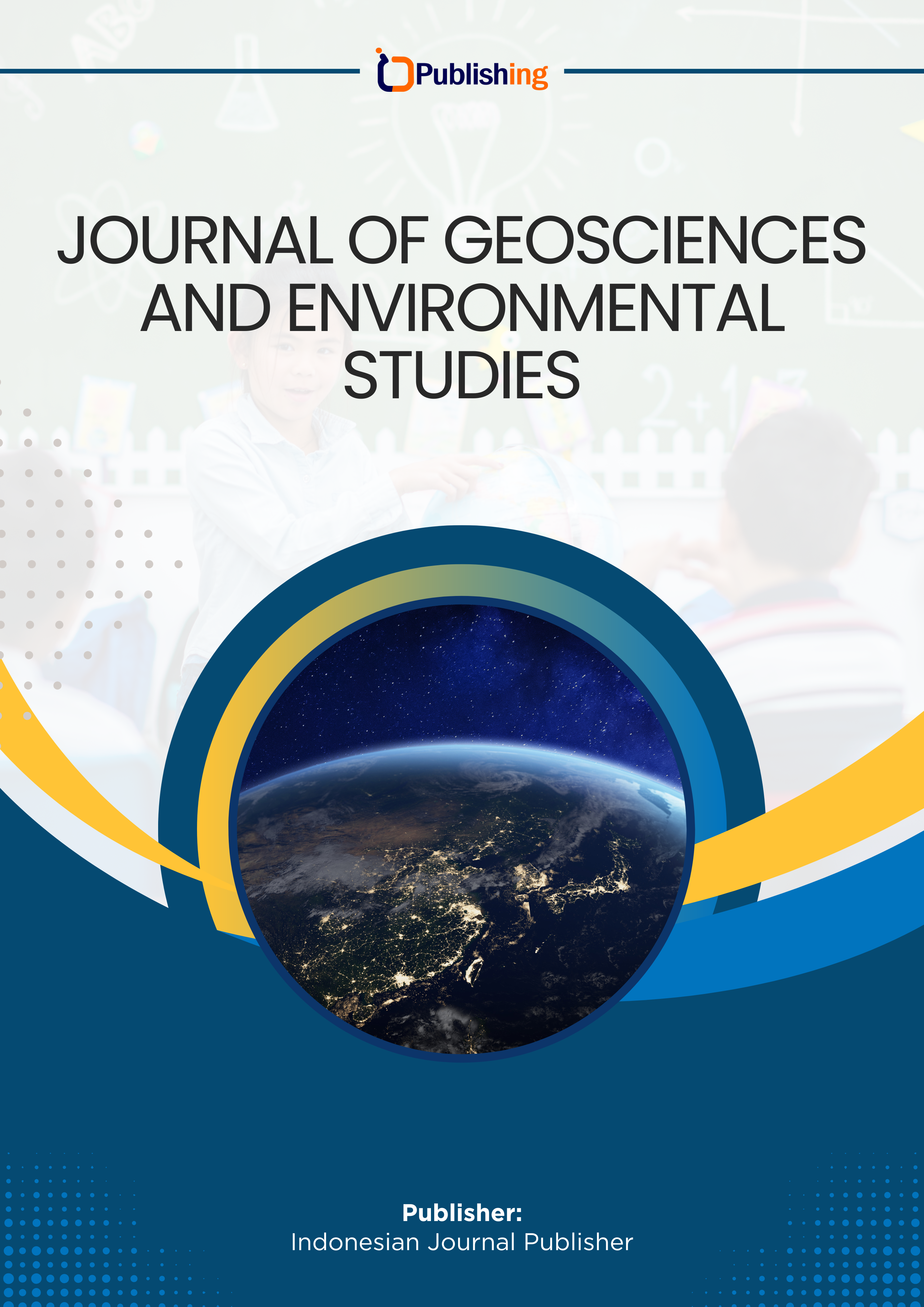Strategies for Handling the Poor Culture of Slum Communities, in Kenjeran Sub-district, Surabaya City
DOI:
https://doi.org/10.53697/ijgaes.v2i2.3872Keywords:
Slums, Clusters, Poor Culture, SWOT AnalysisAbstract
Land use in the North Surabaya City area can still be found in the presence of slums, one of the sub-districts where this phenomenon occurs is in the Kenjeran District. Migration that continues to increase significantly can cause various problems in a residential area. This research aims to formulate a strategy for handling the distribution of slums based on poor culture in the Kenjeran Sub-district. Javanese and Madurese ethnic communities inhabit the majority of the Kenjeran Sub-district. The research used a descriptive qualitative method with SWOT analysis to handle the poor cultural characteristics of slum communities. Data collection from respondents through observation, questionnaires, interviews, and documentation. The unit of analysis in this research is a grouping of people in slums. The population in this study was 7,208 poor people in the Kenjeran Subdistrict. Still, in this study there were 99 respondents consisting of five community groupings, namely fishermen clusters with poor cultural traits of resignation to fate, apathy, dependence, and kinship traits, fishmonger clusters with poor cultural traits of apathy, dependence and kinship traits, culinary clusters with poor cultural traits of apathy and dependence traits, clusters with poor cultural traits of apathy and dependence traits, clusters with poor cultural traits of apathy, and clusters with poor cultural traits of kinship. Artisans with poor cultural traits of resignation to fate and dependency, and tourist attraction clusters with poor cultural traits of dependency.
References
Agistya, R. S. M. A. R. (2021). Studi Literature: Identifikasi Faktor Penyebab Terjadinya Permukiman Kumuh di Kawasan Perkotaan. Jurnal Kajian Ruang, 1(2). http://dx.doi.org/10.30659/jkr.v1i2.20022
Andriana, L., & Manaf, A. (2017). Relevansi Aspek Kemiskinan Dan Fisik Lingkungan Kumuh Pada Penentuan Lokasi Penerima Program Kotaku (Studi Kasus Kecamatan Pamekasan Kabupaten Pamekasan). Jurnal Pengembangan Kota, 5(2), 131. https://doi.org/10.14710/jpk.5.2.131-139
Ayu Tasbiati, O., Delviona Bino Putri, A., Agung Indira Maharani, A., Made Trisna Semara, I., Luh Putu Intan Nirmalasari, N., & Agus Sutiarso, M. (2024). Model Pengembangan Paket Wisata Budaya Melalui Konsep Village Tour Di Desa Wisata Kamasan. Jurnal Ilmiah Hospitality, 13(1). https://doi.org/10.47492/jih.v13i1.3377
Bahruddin, W. (2022). Faktor-Faktor yang Mempengaruhi Migrasi Suku Jawa di Kota Parepare. Economics and Digital Business Review, 3(2). https://doi.org/10.37531/ecotal.v3i2.206
Diyanah, I. ., & Bioresita, F. . (2023). Analisa Kawasan Permukiman Kumuh di Kecamatan Kenjeran Surabaya Menggunakan Metode NDBI dan OBIA serta Data Citra Sentinel-2 Tahun 2022. GEOID, 19(1), 180–191. Retrieved from https://journal.its.ac.id/index.php/geoid/article/view/1802
Fadilla, S. (2018). Kajian Kondisi Fisik, Kondisi Sosial Dan Kondisi Ekonomi Di Permukiman Kumuh Kampung 1001 Malam, Dupak, Krembangan, Kota Surabaya. Urban and Regional Planning Program, Faculty of Engineering, Universitas Sebelas Maret.
Yesiana, R., Handayani, W., & Hayati, R. N. (2015). Keterkaitan Migrasi Penduduk dan Perekonomian di Jawa Tengah. Jurnal Litbang Provinsi Jawa Tengah, 13(1), 93-107. https://doi.org/10.36762/jurnaljateng.v13i1.389
Hanifah, W., & Widyastuti, D. (2015). Penilaian Lingkungan Fisik Permukiman Kumuh di Kawasan Pesisir Kota Semarang. Jurnal Bumi Indonesia, 1–10.
Irawan, A., B. J., W. (2023). Analisis Strategi Penanganan Permukiman Kumuh di Kecamatan Tugumulyo Kabupaten Musi Rawas. Journal of Extension and Development, 5(2). https://doi.org/10.23960/jsp.Vol5.No2.2023.217
Khotimah, C., Ellsadayna, N., Putri, D. I., & Fitroh, S. F. (2014). Profil Lingkungan Kumuh Terhadap Perilaku Penghuni dalam Teori Ekologi-Bronfenbrenner (Studi Kasus di Pemukiman Kumuh Pacar Keling Surabaya). https://doi.org/https://doi.org/10.21107/personifikasi.v5i2.6577
Pinto, Z. (2016). Kajian Perilaku Masyarakat Pesisir yang Mengakibatkan Kerusakan Lingkungan (Studi Kasus di Pantai Kuwaru, Desa Poncosari, Kecamatan Srandakan, Kabupaten Bantul, Provinsi DIY). Jurnal Wilayah Dan Lingkungan, 3(3), 163. https://doi.org/10.14710/jwl.3.3.163-174
Rahman, B., & Putro, S. (2022). Kualitas Lingkungan Permukiman di Kelurahan Miroto, Kecamatan Semarang Tengah Kota Semarang. In Geo Image (Vol. 11, Issue 1). https://doi.org/10.15294/geoimage.v11i1.56394
Refi, M., Razy, O. A., & Mahzuni, D. (2021). Sosial Ekonomi Masyarakat Madura Abad 19-20: Sebuah Kajian Ekologi Sejarah. In Jurnal Sejarah. (Vol. 1, Issue 2). https://doi.org/10.22437/js.v1i2.16241
Sasongko, Y., & Wahyuni, E. (2013). Diaspora Madura: Analisis Modal Sosial Dalam Usaha Sektor Informal oleh Migran Madura di Kecamatan Tanah Sareal, Kota Bogor, Jawa Barat. Jurnal Sosiologi Pedesaan, 1(1), 2302–7517. https://doi.org/10.22500/sodality.v1i1.9390
Suud, B., & Navitas, P. (2015). Faktor-faktor Penyebab Kekumuhan Permukiman di Kelurahan Tanah Kalikedinding, Kecamatan Kenjeran, Surabaya. Jurnal Teknik ITS, 4(1).
Utaminingsih A, S. I. Wayan. (2022). Pengaruh Pendapatan dan Jumlah Anggota Keluarga Terhadap Kesejahteraan Keluarga di Kelurahan Karangasem. Ekuitas: Jurnal Pendidikan Ekonomi, 10(2). https://doi.org/10.23887/ekuitas.v10i2.35304
Zohal, E. (2022). Normalisasi Kawasan Kumuh Eks Lokalisasi Putat Jaya, Kecamatan Sawahan, Kota Surabaya. In Jurnal Kajian Ruang (Vol. 2). http://dx.doi.org/10.30659/jkr.v2i1.20602
Downloads
Published
How to Cite
Issue
Section
License
Copyright (c) 2025 Wanda Fitri Tjahyanityasa, Djaka Marwasta, Rika Harini

This work is licensed under a Creative Commons Attribution-ShareAlike 4.0 International License.














